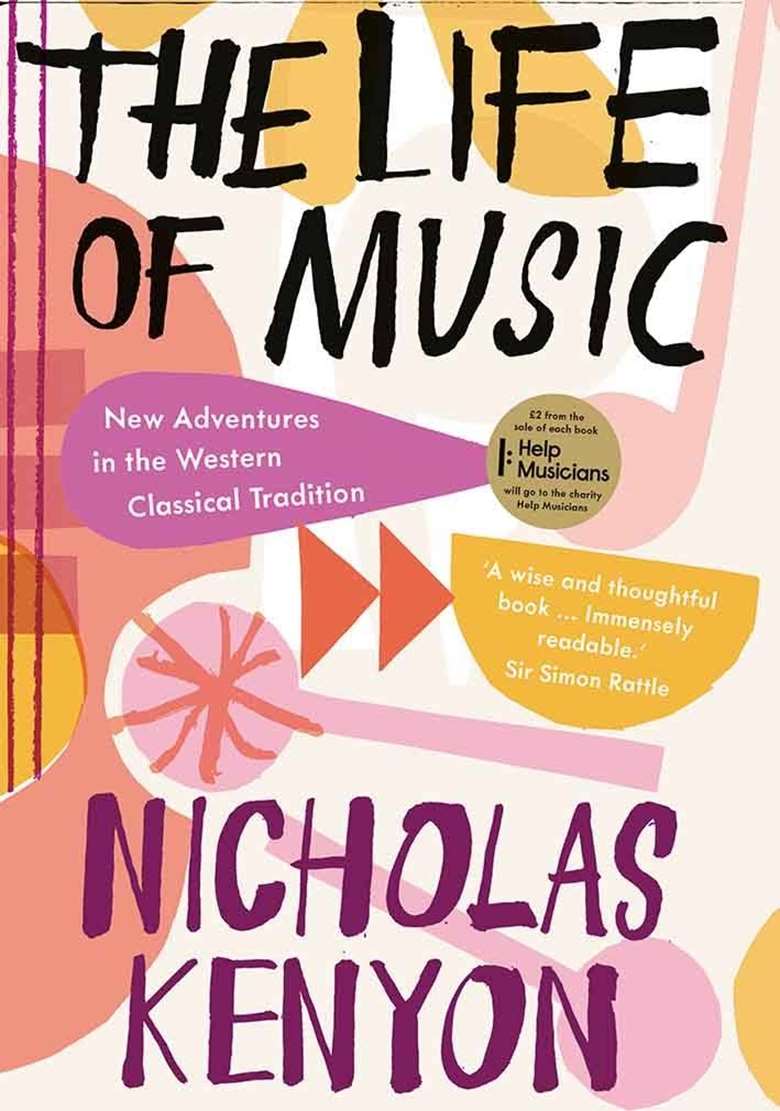Review: The Life of Music - New Adventures in the Western Classical Tradition
Philip Borg-Wheeler
Thursday, April 29, 2021
Philip Borg-Wheeler reviews Sir Nicholas Kenyon's re-assessment of the Western classical tradition

Nicholas Kenyon has held various prominent positions, including controller of Radio 3, director of the BBC Proms (11 years from 1996), managing director of the Barbican Centre since 2007 and music critic of leading newspapers. In spite of these reminders of a distinguished life in music, I am unimpressed by his writing style. His slack handling of sentence construction, including frequent misuse of the conjunction ‘and’, is surprising. (For example - ‘Falla is a real original, and not one of his works is conventional’). Kenyon is much too fond of ‘tipping point’, a term he sometimes repeats even on the same page. It even has an entry in the index. A more conscientious writer would find alternatives. I don't like ‘tipping’, which suggests too sudden a change, whereas musical language more naturally evolves. This may seem a tiny criticism, but it is significant as an example of Kenyon's often disappointing choice of words. I sense haste in the writing of this book. In itself accessibility is laudable, but here it too often drifts into carelessness. At other points he tends to be woolly and diffuse. More attentive editing would have helped.
Kenyon gives an authoritative account of musical history through to the Baroque period, which he acknowledges as a special enthusiasm. Thereafter I find less to admire. Modern writers of concert-syllabus blurb seem compelled to sum up a major work in one or two (inadequate) adjectives, but such a practice sits even more uneasily in a book. Nielsen's six symphonies are ‘more eccentric and wilder than Sibelius's’, but actually they are so tightly organised that ‘wilder’ gives a totally false impression. Kenyon describes Nielsen's Fifth as ‘more pessimistic and tortured’ - but he should listen to the affirmative conclusion, which Robert Simpson recognised as ‘its culminating explosion of triumph’. Again, describing Tchaikovsky's Fourth Symphony as ‘dark and powerful’ exposes the risks of distortion or superficiality when one attempts a two-or-three-word description of a multi-faceted work.
Kenyon mentions the Black Lives Matter movement and the ‘renewed vigour to address the huge undervaluing of the impact of Afro-American culture and to fully recognise and appreciate Black people's presence in and contribution to music today...’, but unfortunately, Kenyon does not present a strong case for any black classical composers he considers to be unfairly neglected.
Unfortunately, Kenyon does not present a strong case for any black classical composers he considers to be unfairly neglected
Later in the book Kenyon lends his support to the sorority of women composers – another cause which too many opportunists have treated as a bandwagon. Lili Boulanger, Sofia Gubaidulina and Galina Ustvolskaya are three who strike me as distinctive. Radio 3 provides regular opportunities for such assessment, but why don't the BBC schedule ‘innocent ear’ programmes of ‘anonymous’ pieces including some by women? This would eliminate any unconscious prejudice.
I find utterly pointless Kenyon's suggestion that Beethoven wrote more second-rate music than any other great composer. Since when were composers evaluated in terms of their least successful creations? (My antennae pick up other anti-Beethoven barbs here and there.)
How can half a page be devoted to Bartók without any mention of the six string quartets? The description of Beethoven's late quartets as ‘utterly introverted’ is woefully inaccurate; ‘Schumann had great success as a conductor’ is farcically untrue; The Damnation of Faust is not an oratorio, while Harold in Italy is not a concerto. Is ‘Kurt Weill could be a match for Stravinsky’ a serious belief or merely a frivolous (and untenable) proposition? Regarding Schubert, ‘the generally small-scale nature of his works’ is an unbelievable misrepresentation, suggesting an alarming ignorance of his late masterpieces. Similarly, elsewhere we read ‘it was in smaller forms that their [Schubert's and Schumann's] feelings flowed most naturally’. To suggest that Schubert was ‘closely bound to the example of Beethoven’ is heretical. Schubert was deeply original, influenced by Beethoven only superficially.
The Life of Music - New Adventures in the Western Classical Tradition is published by Yale University Press. For more information click here.